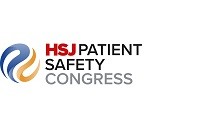This article – the first in a four-part series looking at services for patients with Interstitial Lung Disease (ILD) – looks in particular at data collection, and how better data collection could improve service delivery.
The article has been initiated and funded by Boehringer Ingelheim. It was drafted by MHP Group on behalf of Boehringer Ingelheim.
ILD is a particularly difficult condition for patients. It can cause scarring of the lungs (pulmonary fibrosis), inflammation of the lungs, or both.[1] This damage makes the lungs stiffer and less elastic, so breathing becomes more restrictive and it is more difficult to take in oxygen. The lack of clarity on patient outcomes and the true impact on the wider health system is a key issue, with between 3,000 and 15,000 people diagnosed with ILD in England each year[2]. Services are part commissioned nationally through the NHS England (NHSE) Specialised Commissioning team.
Sponsored by
NHSE have set out a clear roadmap for delegating specialised commissioning powers, with groups of integrated care boards (ICBs) coming together to commission service delivery. This is a real opportunity. The logic of integrated care, and the benefits it brings for patients, apply just as much to specialised services as they do for other service areas benefitting from these reforms. Bringing commissioning closer to the patient allows for innovation in service delivery and design that is more responsive to local population needs and health inequalities.
Yet there are risks in this process, and key building blocks need to be in place for ICBs to deliver these services effectively. One of the most important building blocks is proper data. Data collection in ILD is currently sparse and inconsistent[2]. Patients have suffered from the use of generic diagnostic coding data, often likely to be inaccurate. This has impaired support for treatment management and accurate referral, but particularly limits the ability for research and improvements throughout any pathway. ILD often has a similar or worse prognosis for life expectancy than many cancers, yet patients with ILD have not benefited from the same focused service optimisation[2].
Limited data collection on service design and performance means that the ILD community are unable to apply the same scrutiny for service improvement that has been afforded in other areas and yielded great returns. Granular visibility on patient flow has enabled sustained optimisation of cancer pathways across the NHS. It has enabled scrutiny that helped to incrementally improve each aspect of the patient experience.[3] The proper breadth, consistency, and accuracy of data input, mandated through national policy, can spur a similar optimisation of care and planning in ILD services.
Any delegation of responsibility for commissioning must be accompanied by improved data collection. There must be broader data collection, showing where patients are in the system, how long they have been waiting, and how patients are moving through their treatment journey. Although high level data is available through the NHS ILD Quality Dashboard, without broader ICB performance data, prioritising improvement efforts and negotiating for increase in funding and capacity from national policymakers is more difficult.
At the same time, there needs to be support for the network of specialist centres to take on this work. Capacity across the ILD network of services is severely constrained, with workforce challenges and a substantial cohort of patients who require specialist care and support across the network of treatment centres. We will continue to explore these issues in future articles.
However, there are already a range of options available to support the development of that capacity for better data collection. It could be through the payment mechanism, such as a Best Practice Tariff, or targeted funding to enable specialist centres to take on administrative data support.
Data collection might not seem like the most tangible area for focus, yet for any reform to establish sustainable health systems, proper visibility on performance is key. Our aim is to champion ILD patients, and we will engage with both national and local policymakers to look at workable solutions that both support ILD services and the patients that interact with them.
Job bag number: NP-GB-103565
Date of preparation: October 2023
Source Date
[1] British Lung Foundation (BLF). What is Interstitial Lung Disease. Last reviewed NHS. Overview – idiopathic pulmonary fibrosis. Available at: What is interstitial lung disease (ILD)? | Asthma + Lung UK (blf.org.uk). [Accessed May 2023]
[2] Quint J., et al. Boehringer Ingelheim and ILD Expert Group – White Paper - Interstitial Lung disease: Driving towards service optimisation in the new NHS. November 2022.
[3] NHS Digital. NDRS – Cancer Diagnostic Pathways. Available at: https://digital.nhs.uk/ndrs/our-work/ncras-work-programme/cancer-diagnostic-pathways. [Accessed April 2023].


























